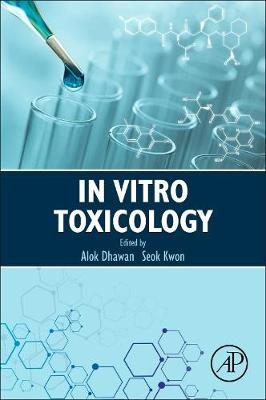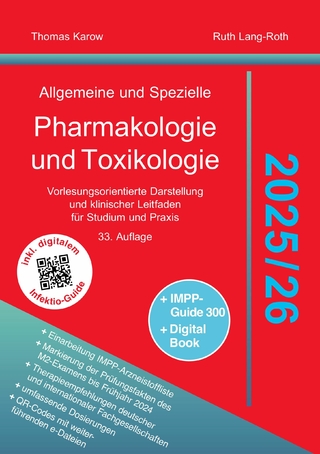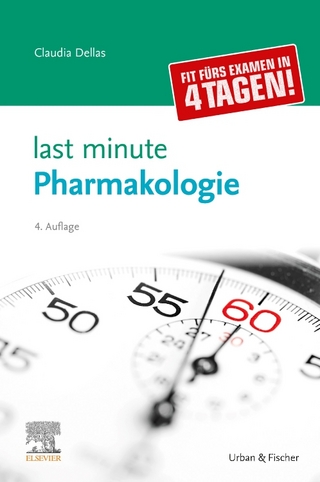
In Vitro Toxicology
Academic Press Inc (Verlag)
978-0-12-804667-8 (ISBN)
Furthermore, principles involved in the general selection and use of models that address the issues of safety concerns and regulatory acceptance of these models are discussed, making the book beneficial to students, scientists, and regulators working in toxicology, as well as those in the field of chemicals and the safety assessment of novel materials.
Professor Alok Dhawan is currently Director, Institute of Life Sciences, Ahmedabad University, Gujarat on lien from CSIR-Indian Institute of Toxicology Research, Lucknow where he is Principal Scientist and Area Coordinator, Nanomaterial Toxicology Group. He obtained his Ph.D. Biochemistry from University of Lucknow, India in 1991. Professor Dhawan started the area of nanomaterial toxicology in the country and published a guidance document on the safe use of nanomaterials. His group elucidated the mechanism of toxicity of metal oxide nanoparticles in human and bacterial cells. His work has been widely cited. He set up a state of the art nanomaterial toxicology facility at CSIR-IITR. He pioneered the identification of peripheral biomarkers of exposure, effect and susceptibility to xenobiotics. Using DNA damage in lymphocytes as a biomarker of exposure, he has established the reference values for DNA damage in healthy Indian population. He also developed and validated Drosophila melanogaster for in vivo genotoxicity assessment. These can have far reaching applications in predicting the adverse health effects of drugs and chemicals on human health. He was instrumental in promoting the cause of alternate to animal models in toxicology including in silico models. Professor Dhawan has won several honours and awards including the INSA Young Scientist Medal in 1994, CSIR Young Scientist Award in 1999 the Shakuntala Amir Chand Prize of ICMR in 2002 and the Vigyan Ratna by the Council of Science and Technology, UP in 2011. His work in the area of nanomaterial toxicology has won him international accolades as well and he was awarded two Indo-UK projects under the prestigious UK-IERI programme. He also has two European Union Projects under the FP7 and New INDIGO programmes. He founded the Indian Nanoscience Society in 2007. In recognition of his work he has been elected Fellow, The National Academy of Sciences, India; Fellow, The Academy of Toxicological Sciences, USA; Fellow, The Academy of Environmental Biology; Fellow, Academy of science for Animal Welfare; Fellow—Society of Toxicology (India), Founder Fellow, Indian Nanoscience Society; Vice President—Environmental Mutagen Society of India (2006–07); Member—National Academy of Medical Sciences. He has to his credit over 100 publications in peer reviewed international journals. Five reviews/book chapters. Four patents, one copyright and the Comet assay website www.cometassayindia.org. He has also been a Guest Editor of a special issue of the journal Nanotoxicology (Supplement 1, 2008) and Volume 3(1) 2009 published by Taylor and Francis group, UK. He has edited a book along with Prof. Diana Anderson entitled The Comet Assay In Toxicology which has been published by The Royal Society of Chemistry, UK under its series on Issues in Toxicology. He is the Editor-In-Chief, Journal of Tranalational Toxicology published by American Scientific Publishers, USA and serves as the Member, Editorial Board of Mutagenesis, Mutation Research Reviews and other journal of repute. Dr. Seok (Soga) Kwon is a human safety toxicologist at Singapore Innovation Center, Procter & Gamble (P&G) in Singapore. Dr. Kwon has worked across multiple product categories including Skin, Hair, Perfumery, Fabric & Home, Paper, Baby and Air Care for global markets. Dr. Kwon is the Chairman of the Annual Asia Safety Expert Symposium. He is a member of Safety Advisory Committees for ASEAN Cosmetic Association & Center for Cosmetics Risk Assessment. Prior to joining P&G, Dr. Kwon completed his post-doctoral fellowship in Endocrine, Reproductive & Developmental Toxicology Program at Chemical Industry Institute of Toxicology, North Carolina, USA, a visiting fellowship in Laboratory of Reproductive & Developmental Toxicology at National Institute of Environmental Health Sciences, National Institutes of Health, North Carolina, USA, and Ph.D. from University of Illinois at Urbana-Champaign, USA.
1. Development of in vitro toxicology: A historic story 2. Principles for in vitro toxicology3. Models and methods for in vitro toxicity4. Methods for in vitro genotoxicity5. Considerations of metabolism in in vitro toxicology6. In vitro approaches for predictive biokinetics7. Application of Omics Technologies to In Vitro Toxicology8. Extrapolation of in vitro results to predict human toxicity9. Nanotoxicity: an in vitro prediction10. Scientific and regulatory considerations in the development of in vitro techniques for toxicology11. Safety issues in the use tissues/in vitro methods for toxicity assessment12. Future directions in in vitro toxicology
| Erscheinungsdatum | 29.01.2018 |
|---|---|
| Verlagsort | San Diego |
| Sprache | englisch |
| Maße | 152 x 229 mm |
| Gewicht | 410 g |
| Themenwelt | Studium ► 2. Studienabschnitt (Klinik) ► Pharmakologie / Toxikologie |
| Naturwissenschaften ► Biologie ► Biochemie | |
| ISBN-10 | 0-12-804667-8 / 0128046678 |
| ISBN-13 | 978-0-12-804667-8 / 9780128046678 |
| Zustand | Neuware |
| Haben Sie eine Frage zum Produkt? |
aus dem Bereich


